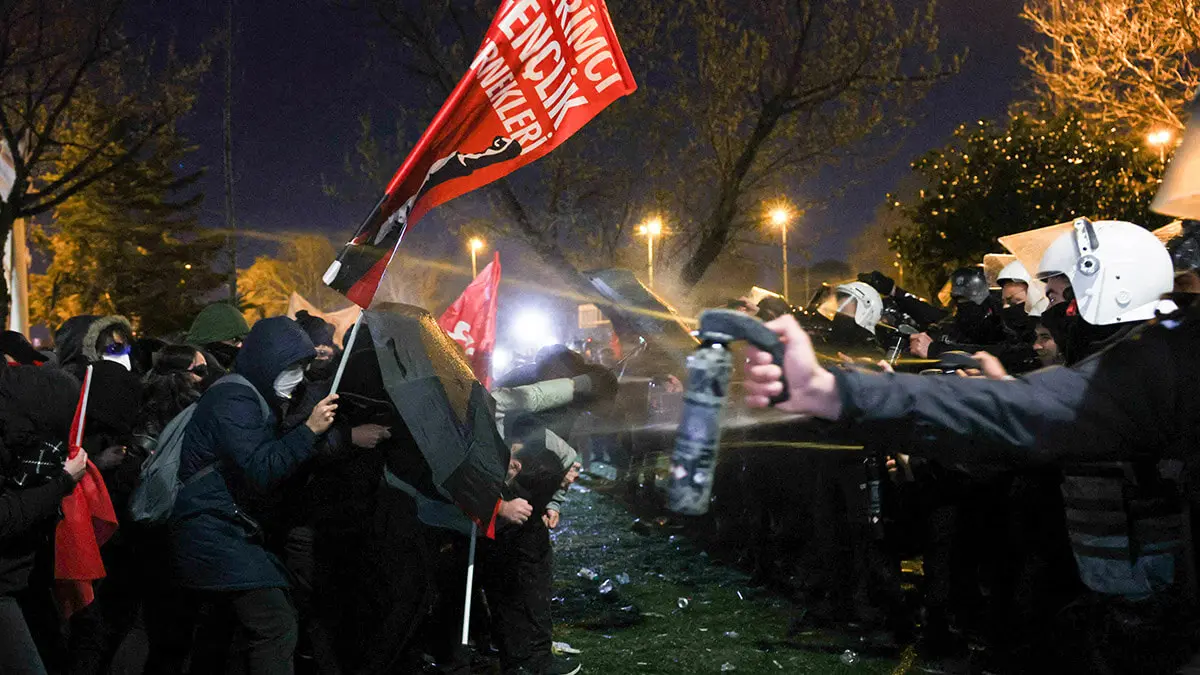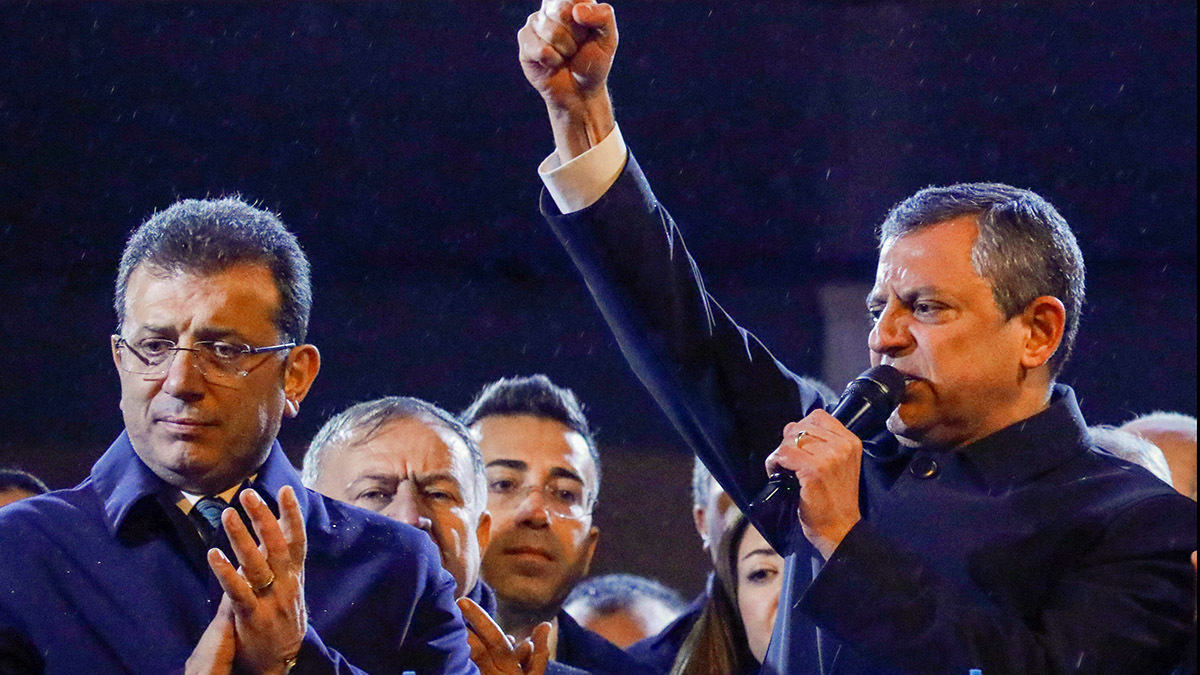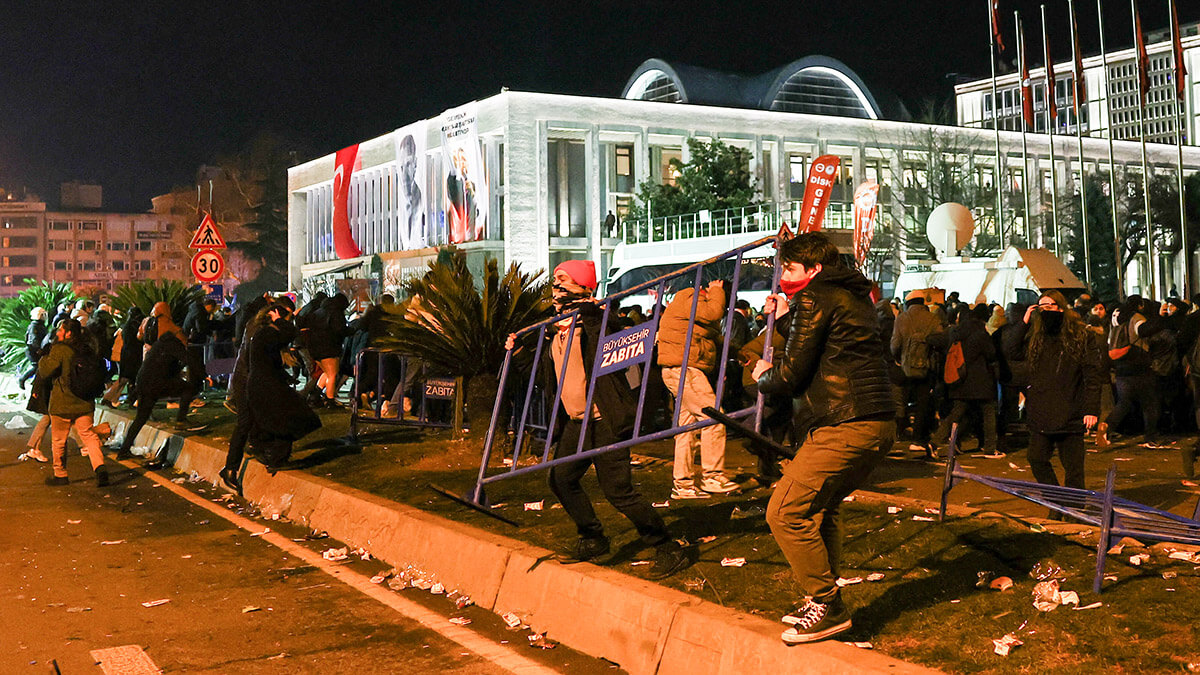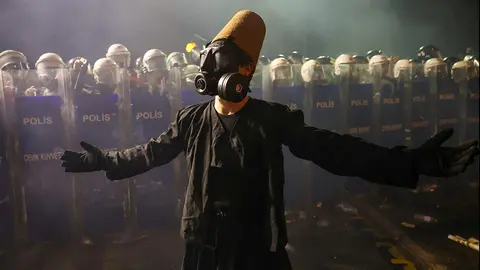The EU demands that Turkey defend democracy after the arrest of Imamoglu

The European Union has urged Turkey to ‘defend democratic values’ after the arrest of more than 1,100 people during five days of intense protests in the country. The social upheaval was triggered by the arrest of Ekrem Imamoglu, mayor of Istanbul and President Recep Tayyip Erdogan's main political rival.
On Monday, the European Commission urged Ankara to ‘defend democratic values’, while the Turkish authorities intensify their repression of the opposition and the free media. ‘The arrest of Mayor Imamoglu and the demonstrators raises questions about Turkey's compliance with its deep-rooted democratic traditions,’ said Commission spokesman Guillaume Mercier.
The imprisonment of Imamoglu and other political figures has been described as ‘a serious attack on democracy’ by the French Foreign Ministry, which emphasised the importance of protecting the rights of the opposition and respecting democratic commitments in the context of relations between Turkey and the EU.
Germany also expressed its ‘great concern’ at the situation. Steffen Hebestreit, spokesman for Chancellor Olaf Scholz, declared that ‘the arrest and suspension of the mayor of Istanbul is totally unacceptable’ and demanded a rapid and transparent clarification of the facts. In addition, German officials held talks with the Turkish ambassador in Berlin to express their concern.
The protests, which began in Istanbul after the arrest of Imamoglu for alleged ‘corruption’ and ‘supporting a terrorist organisation’, intensified with the arrest of more than 1,133 people, according to the Minister of the Interior, Ali Yerlikaya. Furthermore, the Turkish authorities attempted to close more than 700 accounts on the social network X, which led to criticism of freedom of expression in the country.

The repression was not limited to the demonstrators: on Monday morning, the police detained 10 journalists, including an AFP photographer, for covering the protests. These arrests have raised additional concerns about the state of press freedom and human rights in Turkey.
For his part, Erdogan accused the opposition of instigating the ‘escalation of violence’ in the demonstrations and blamed opposition groups for damage to public property and injuries to police officers. ‘The main opposition is responsible and will be held accountable,’ he declared, stating that ‘they cannot be entrusted with the government of the state, let alone the management of municipalities.’
The situation has generated a strong international reaction, with the EU and several member countries demanding that Turkey respect democratic principles and guarantee the rights of the opposition. Meanwhile, tension in the streets continues to rise, exposing the deep political polarisation in the country.

‘The anger of young people grows as the violence intensifies’
Despite the bans and pressure from the authorities, thousands of young people continue to take to the streets to protest against the arrest of Imamoglu and the country's political situation. Among them is Meral, a 27-year-old who has decided to speak out for the future of Turkey.
Speaking to Atalayar, Meral recalls that the protests were triggered by the cancellation of the elected mayor's university degree, a measure she considers ‘unjust’. A few days later, the arrest of İmamoglu, accused of corruption and links to terrorism, fuelled public outrage and gave way to the massive demonstrations that continue to shake the country.
Saraçhane’de polisin bacaklarına plastik mermi sıktığı genç kız bugün yine adalet nöbetinde. pic.twitter.com/QVRg4eJv96
— Milliyetçi Kavga (@milliyetcikavga) March 24, 2025
‘Young people, aged between 18 and 24, took part in these protests in particular. It was an unexpected reaction because Generation Z was thought to be apolitical’, Meral points out.
The young people chanted slogans such as ‘rights, law, justice’, ‘Erdogan resign!’, ‘We are the soldiers of Mustafa Kemal (the founder and first president of the Republic of Turkey).
‘I think they are experiencing an emotional outburst due to economic difficulties and injustice, people feel anxious about the future,’ says the young Turkish woman. Meral also reports that in the early days of the protests there was police intervention, but that on Sunday night “the repression was much more severe”.
Sırtında Atatürklü Türk bayrağı ile tek başına duran genci plastik mermi ile vurup uçan tekme ile düşürüp gaza boğup yerde darp eden “emir kulları”. pic.twitter.com/q5DhabXNO3
— turkificated (@turkificated) March 22, 2025
‘They used an excessive amount of pepper spray, which is considered a chemical weapon. Unfortunately, I experienced it first-hand for two days. The use was so intense that even the gas fired a kilometre away had an effect,’ she explains, showing the harshness of the police response.
Meral also emphasises the growing physical violence during the protests. ‘There is definitely a disproportionate force. There are many injured. Yesterday, a university student fell into a coma from a blow to the head. The bodies of the protesters are covered with wounds,’ she says with concern.
The young woman highlights the paradox that is being experienced in the streets: ‘It's hard to believe, but the only thing the young people have in their hands is the Turkish flag. The police also have the Turkish flag on their shields. Even so, the government and the security forces accuse the demonstrators of being terrorists’.
Saraçhane’de boşu boşuna biber gazı yemeyeceğiz diyen öğrenciler Galata Köprüsü’nde durma kararı aldı. Yolun iki yönü de trafiğe kapattıldı pic.twitter.com/cgls5mybFB
— elif ünal (@eliff_unall) March 24, 2025
For Meral, the indignation is fuelled by the perception of a flagrant injustice. ‘All they are doing is protesting for their constitutional rights. Nobody believes that the mayor is corrupt. He has been subjected to more than 1,000 state inspections since he was elected and nothing has been found,’ she emphasises.
The young woman anticipates that the demonstrations will not cease any time soon. ‘In my opinion, the protests will continue to increase. The anger of young people, in particular, is growing as the violence intensifies,’ she concludes.










